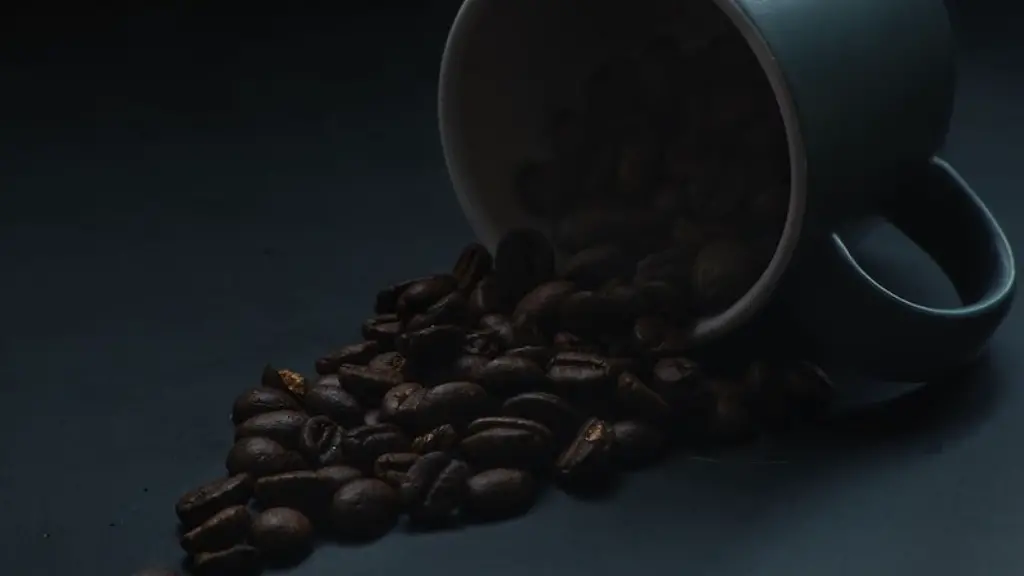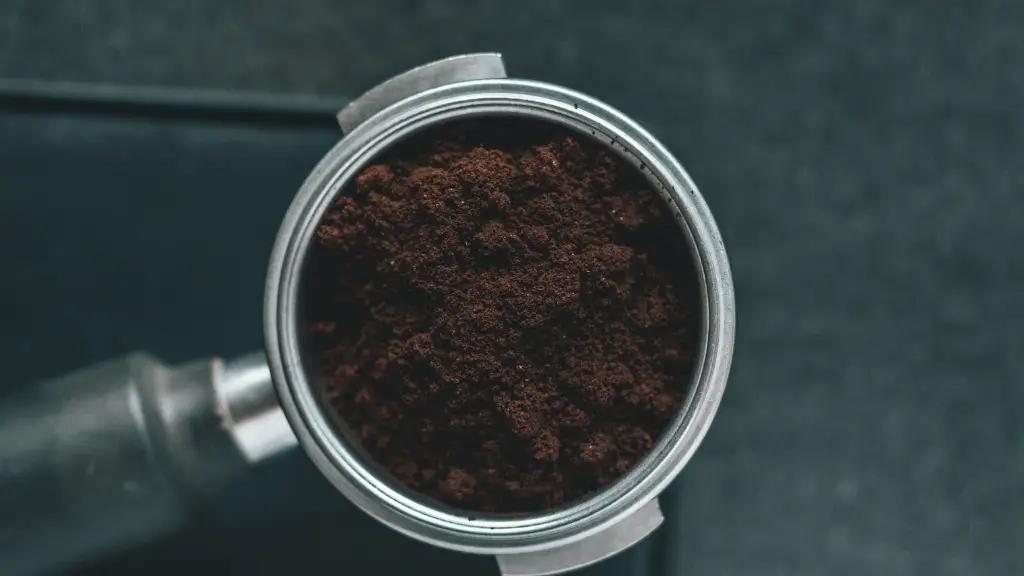Caffiene and Child Development
As children enter the teenage years, they become more and more exposed to a plethora of habits that are typically deemed to be more adult in nature. One of these habits is drinking coffee; but can a 10 year old drink coffee?
The answer is a bit complicated, as it will likely vary depending on your child. If they are developmentally advanced, then coffee itself may not be the issue, but it is important to remain mindful of the amount of caffeine in coffee. In fact, according to the American Academy of Pediatrics, caffeine can affect a child’s development and cause changes in the nervous system, while too much can even lead to some discomfort. Therefore, as a parent, it’s important to monitor the amount your child drinks and decide if it is appropriate for their age.
Experts in the field of child development have differing opinions on this topic, and the most widely accepted view is that caffeine is not healthy for children. According to some studies, it can have an effect on the neurological development of a child. In addition, there are concerns that caffeine may have adverse effects on a child’s sleep and energy levels, vision, and even behavior. For these reasons, it is recommended that a child should not drink coffee.
It is important to remember that while caffeine is considered to be safe in moderate amounts for adults, it is quite different for a child who is much more sensitive to the effects that caffeine can have. Furthermore, the effects of caffeine on child development can be long-term and have potential for some serious repercussions if a child starts drinking coffee too young.
Properties of Cofee
Coffee itself is made from the roasted beans of the Arabica coffee plant and contains a number of stimulating chemicals. The most notable of these stimulants is the caffeine, which can be found in a myriad of other beverages, such as energy drinks and tea. Caffeine is known to have both positive and negative effects on the body, depending on the individual and their sensitivities. Some effects include increased alertness and focus, improved mood, and even a sense of euphoria.
Caffeine can also cause unpleasant side effects such as jitteriness and anxiety, stress, and headaches. It can also lead to disruptions in a person’s sleep which becomes especially important in the case of a growing child who needs good quality sleep to promote optimal growth and development. Too much caffeine can also cause the body to become dehydrated, which can be dangerous for children as well as for adults.
Caffeine is a stimulant, which means it affects the central nervous system. In moderate doses, caffeine can increase alertness, focus and even improve performance, but drinking too much of it can lead to dehydration, irregular heartbeats, and even insomnia. It’s also important to note that caffeine can be addictive, so it is recommended to limit caffeine intake among children as much as possible.
Health Risks Associated with Cofee Consumption
There are a number of potential health risks associated with drinking coffee at a young age, some of which include changes to blood pressure and heart rhythm, upset stomach, and even the potential for drug interactions. Furthermore, caffeine can also affect a child’s immune system which can leave them more susceptible to infections.
Finally, it is believed that caffeine can accelerate bone growth in children, which can lead to various developmental issues and even stunted growth in some cases. As a result, health experts suggest that it is best for children to avoid caffeine altogether until they reach at least teenagers years of age.
Alternatives to Coffee
If you are still worried about the effects of caffeine on your child, then there are many healthy and caffeine free alternatives that can offer the same benefits. For instance, herbal teas can be just as stimulating as coffee, as they contain caffeine-like stimulants such as theanine and quercetin. In addition, juices and smoothies can also give your child an extra energy boost without the need for caffeine, and you can easily find recipes for healthy and delicious smoothies online.
Finally, for a truly caffeine free boost of energy, you can always turn to natural sources such as exercise and good nutrition. By encouraging your child to maintain a healthy lifestyle, you can help them to stay energized and alert without the need for caffeine or any other stimulant.
Coffee as a Part of Balanced Lifestyle
Overall, the answer to “Can a 10 year old drink coffee?” is a qualified no; however, this doesn’t mean that you can’t incorporate coffee into your child’s life in a healthy and responsible way.
It is important to encourage balanced lifestyle practices and teaching your child the importance of moderation when it comes to caffeine. This is especially true when it comes to children who may need some extra stimulation to focus, such as those with ADHD or other concentration issues. In this case, it may be wise to speak to your child’s healthcare provider and come to an agreement on how to best incorporate coffee into their routine.
If you do decide to allow your child to drink coffee, then it is important to stress the importance of drinking it in moderation and not to exceed the recommended daily amounts. It is also essential to restock their caffeine stash with decaffeinated coffee, herbal teas, and caffeine-free energy drinks to ensure that their intake does not exceed what is considered to be healthy for their age and development.
Rites of Passage and Coffee Consumption
For some children, drinking coffee is associated with growing up and entering into adulthood, as coffee has been a cornerstone of adult culture for hundreds of years. Letting your child start drinking coffee can feel like a natural “rite of passage” and a way to show that you trust their judgement in the right amounts.
If coffee becomes part of your child’s routine, then it’s important to remember that coffee does not always have to be associated with an unhealthy habit. Coffee can be enjoyed in moderation and at any age, as long as your child is well aware of the risks involved. With the right guidance and surveillance, coffee can be integrated into your child’s life in safe and healthy ways.
Cultural Impact of Coffee Consumption
Coffee drinking has become increasingly popular, especially among young adults and teenagers. It has made its way into many coffee shops and cafes and is seen as a sophisticated activity. As a result, coffee is often seen as a more adult beverage and some adolescents believe that drinking coffee is a sign of maturity.
It is important to remember, however, that coffee itself is not the defining factor in a person’s maturity, and forcing your child to drink coffee to fit in with their peers can be a hazardous choice. In addition, there is the potential for young people to use coffee as a way to increase energy, which could be a sign of an underlying health issue. Therefore, as a parent it is important to stay engaged in your child’s life and to look for signs that will indicate whether or not coffee is a healthy choice for them.
Alternatives to Caffeine
Finally, when it comes to providing your child with the extra energy and focus that they need, there are many alternatives to caffeinated beverages that can help boost their performance in a more natural way. For instance, fresh fruits and vegetables, whole grains, nuts, and legumes are all great sources of natural energy that can help to restore energy levels without resorting to caffeine.
Activity is also a great way to increase energy levels and focus, and activities such as yoga, tai chi, and martial arts can offer the same benefits as coffee without any of the health risks associated with caffeine. Finally, getting enough sleep is paramount to your child’s physical and mental health, and can help them to stay focused and alert throughout the day without the need for caffeine.
Stimulants and Creative Thinking
It is believed that stimulants like caffeine can also have a positive effect on creativity, and some experts have even argued that caffeine can help to boost creative thinking. However, it is important to remember that caffeine itself is not the sole factor in creative thinking, and there are many other activities that can help to foster creativity such as art, music, and writing, which do not have to involve caffeine.
In addition, it is important to remember that creativity can also be fostered without the use of any stimulants at all, and there are other activities such as meditation and mindfulness that can help to stimulate creative thinking without any external factors. It is important to remind your child that they can use their own innate creativity to think creatively and outside of the box, without relying on any type of stimulant.
Teaching Your Child to Make Healthy Choices
Ultimately, the decision of whether or not a 10 year old should drink coffee is up to the parent and the child. It is important to take into account all of the potential health risks as well as the benefits that coffee can provide when making this decision. In addition, it is essential to provide your child with all of the information that they need to make an informed decision and to provide them with the tools and guidance to make healthy choices.
Finally, it is important to remember that coffee does not have to have any part of your child’s life, and there are plenty of safe and healthy alternatives that can provide the same energy and focus that coffee can. There is no one-size-fits-all solution when it comes to deciding if your 10-year-old should drink coffee, and the best way to ensure that your child is making the right choice is to provide them with the knowledge and resources they need to make informed and responsible decisions.





